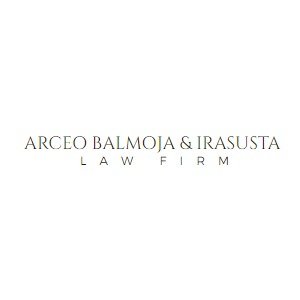Best Class Action Lawyers in Bulacan
Share your needs with us, get contacted by law firms.
Free. Takes 2 min.
List of the best lawyers in Bulacan, Philippines
About Class Action Law in Bulacan, Philippines:
Class action, also known as class suit or representative action, is a type of lawsuit where one of the parties is a collective group of individuals being represented collectively. In the Philippines, including Bulacan, class action lawsuits are generally guided by Rule 3, Section 12 of the Rules of Court. This provision allows a part of individuals -- who share a common interest about a question of law or fact -- to sue or be sued as a group. Common cases include consumer protection issues, environmental issues, and human rights violations.
Why You May Need a Lawyer:
If you're part of a class- a group of individuals who have suffered the same injustice or injury, you may need a lawyer to represent your collective interests. Situations could include defective product claims, false advertising, unfair business practices, and other instances of corporate misconduct. A class action lawyer will help you navigate the complexities of procedural laws, represent your interests effectively, and help you understand your rights and the potential remedies you could receive.
Local Laws Overview:
The Philippines’ Rules of Court, Rule 3, Section 12 acts as the main local law guiding class action cases. It states that where the parties on either side are numerous, and it is impracticable to bring them all before the court, one or more may sue or defend for the benefit of all. However, it’s important to note, that to proceed, the class must first correctly constitute for the court to allow the class suit.
Frequently Asked Questions:
What is a class suit?
A class suit is a lawsuit filed by one or more plaintiffs on behalf of a large group, or "class", who have suffered the same harm.
How does a case become a class action?
A case becomes a class action once the court certifies it as such. This happens when the court finds that there are common questions of law or fact among the class members, and the representatives are capable of adequately representing the interests of the entire class.
Do I have to join a class action?
In most cases, members of the class are automatically included in the lawsuit unless they choose to opt out.
What is the role of the representative plaintiff in a class action?
The representative plaintiff represents the interests of the entire class in court proceedings. They consult with the class counsel, make decisions pertaining to the prosecution of the litigation, and are active in the lawsuit.
What if the class action is settled or won?
If a class action lawsuit is won or settled, a plan of distribution will be developed to distribute the funds to the class members. This process can vary and may take some time.
Additional Resources:
For more information on class action law in the Philippines, you might consider reviewing the Rules of Court, or consulting legal databases such as the ASEAN Law Association website. For free legal aid in Bulacan, the Public Attorney's Office (PAO) might be able to assist you on a walk-in basis depending on your qualifications.
Next Steps:
If you believe you need legal assistance concerning class action in Bulacan, it's advised to consult with a local lawyer who specializes in class action suits. Gather any relevant documents related to your claim and schedule a consultation. Remember to discuss the details of your case, ask questions about the process, and learn about potential outcomes for your situation.
Lawzana helps you find the best lawyers and law firms in Bulacan through a curated and pre-screened list of qualified legal professionals. Our platform offers rankings and detailed profiles of attorneys and law firms, allowing you to compare based on practice areas, including Class Action, experience, and client feedback.
Each profile includes a description of the firm's areas of practice, client reviews, team members and partners, year of establishment, spoken languages, office locations, contact information, social media presence, and any published articles or resources. Most firms on our platform speak English and are experienced in both local and international legal matters.
Get a quote from top-rated law firms in Bulacan, Philippines — quickly, securely, and without unnecessary hassle.
Disclaimer:
The information provided on this page is for general informational purposes only and does not constitute legal advice. While we strive to ensure the accuracy and relevance of the content, legal information may change over time, and interpretations of the law can vary. You should always consult with a qualified legal professional for advice specific to your situation.
We disclaim all liability for actions taken or not taken based on the content of this page. If you believe any information is incorrect or outdated, please contact us, and we will review and update it where appropriate.









